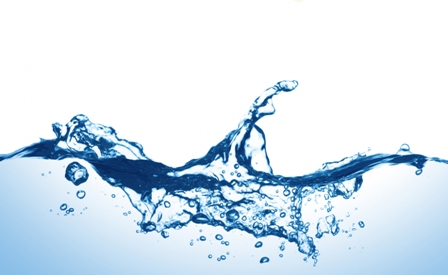 |
By Judy Wickens, Volunteer at UIA, Retired Secretary-General of T.I.C.
International Water Week. We can not live without it. But sometimes we can not live with it. Water. Numerous intergovernmental, charitable or technological organisations strive to control water for use, to supply entire nations or isolated communities.
More than half the surface of our planet is covered by ocean. Rivers, lakes, ponds have fresh water. One of our greatest world challenges is that water is often not where humans need it, but present in excess elsewhere. After exceptional rains, the Brisbane River, Indus, Mississippi flooded. The flood level could be tracked as it swept inexorably downstream, carrying away people, livestock, homes. Such events are now observed and predicted but remain inescapable. Water technology and management are the focus of International Water Week from October 29.
Water finds its own level: after the bed of the ocean drops away in ferocious earthquakes the sea flows in, creating a huge pressure difference and consequent wave which spread outwards like the ripples from a gigantic stone across the vastness of the seas. The recent quake shifted the entire country of Japan on the map of our world, buildings with flexible steel frames and rolling foundation joints resisted the shaking, but nothing in its path could resist the great wave which we now all call by its Japanese name, tsunami.
An 'element'? Water was one of the basic elements in ancient philosophy, in recognition of mankind's need for it. It is not, chemically, an element. At normal temperatures it should not even be a liquid: heavier molecules, nitrogen, oxygen, carbon dioxide, are gases, whereas water takes us by surprise in being a flowing liquid.
We drink it, generate electric power with it, holiday by it, sail on it, swim in it, marvel at it. We expect water to flow from our taps, we expect it to transport our heaviest goods great distances, carrying oil, trucks, minerals. We pipe it, channel it, dam it, confine it with sea walls or docks. Suddenly it shocks us by breaking wildly through our defences, we are helpless.
When long awaited seasonal rains fail, drought threatens, water retreats from regions where we thought we had it under control and deserts expand. Irrigation practised for centuries by shaduf or screw is increased on a gigantic scale: rivers cease to flow. An entire sea, the Aral Sea, dries up, an unintended consequence of our efforts at domination.
Rural traditions demand that women and children devote the majority of their time and strength to fetching water, still it is estimated that a billion people have no safe, clean drinking water. International organisations can bring relief: Practical Action, for instance, has been effective for almost 50 years, supplying simple, low-cost solutions for communities' problems. Our dismay if we turn on a tap and no water flows is in shameful contrast.
Sea level rises as our planet warms, not only because the sea is fed by melting ice-caps but also because the body of water increases in volume with every degree of temperature rise. Wetlands and flood plains act as sponges to absorb temporary accesses of rain, but we interfere, we drain them for building, or we concrete over large areas to make car parks, then bemoan the results of our ill-advised projects.
Even when nature provides abundant water, use and distribution require investment: sea water is 'free' but desalination equipment is expensive; harvesting rainwater requires collection and storage facilities - a parallel to costly windmill turbines to harness the wind.
Water is all around us, but so often it is too much or too little, in the wrong place, according to our ideas. The recent power station problems in Japan epitomise both aspects: the pumping machinery was swamped by water from the tsunami, then the water essential for cooling circuits and protective tanks was out of reach.
Mankind will continue its struggle to keep in check this force of nature, to master this vast resource.